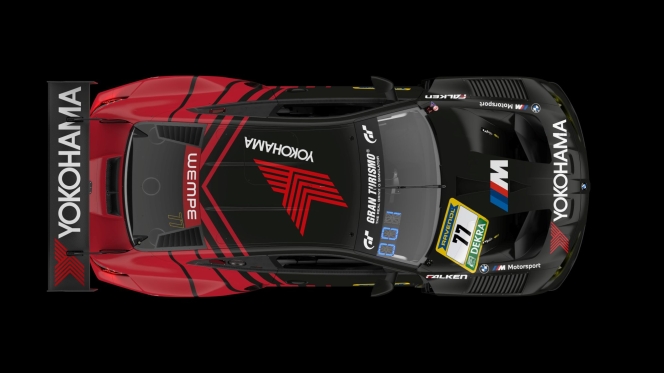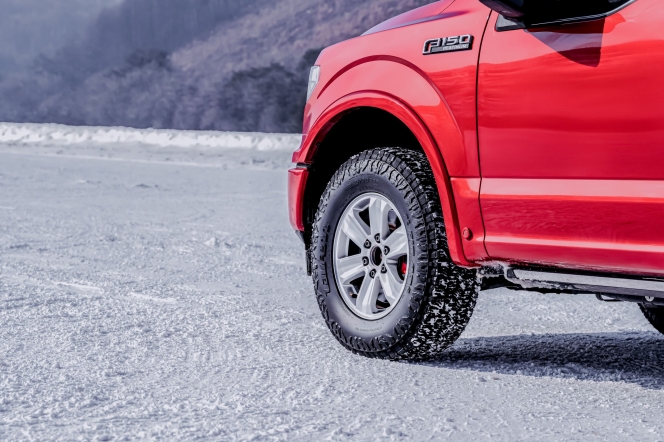What’s the biggest breakthrough in the tyre industry?
- By Ertugrul Bahan
- December 23, 2020

Will my dream ever come true? Recent material and technological innovations suggest this… Once this becomes a reality, how industrial tyre factories work? As a brand manufacturer, who could survive and catch up with this ability?
 The big brands of the 1970s sold the same sizes of samples made from the same material for 15 to 20 years. Today you need to market a top-quality product every three years.
The big brands of the 1970s sold the same sizes of samples made from the same material for 15 to 20 years. Today you need to market a top-quality product every three years.
Any branded manufacturer that is looking to be competitive and doesn’t want to sell a standard product with a low-profit margin needs to own a product of the highest quality that is really good for the customer. Therefore, brand owners should give a clear answer to this dramatic question of whether their product is innovative or revolutionary. When you have a clear answer, your path to success is clear. Even though the product lifecycle will not be as similar as it has been over the past several decades, then marketing can create a product map. Even though it is revolutionary, its popularity in the market will drop to almost zero in three years.
In electronics, for example, the remarkable drift of a new product is six months. Over the next six months, its popularity may decline and lag behind the competition, which means that the product life in electronics is close to a year. So you need to install a new product every year if you have a long-term business vision.
What is the situation like in the tyre industry? Major brands of the 1970s produced the same pattern and sizes from standard materials and compounds for 15-20 years. They used the same mould and equipment during long year product life. Hence, they maximized their profits with limited investments. What is the situation today?
“Smart materials” as a combination of all these will shape the industry in the next decades and we will talk “smarter” and “super smart materials.”
Material science is leading the technology. Lighter, more durable, more dimensionally stable, stronger and flexible materials can be provided for new designs in the industry. Hardware and electronics benefit from these developments. At the same time, better programming with the same hardware configuration leads to a fantastic result. However, when the hardware is limited, amasing software codes won’t work. The new materials, electronics and programming so will lead to revolutionary innovations in the coming years. “Smart materials” as a combination of all these will shape the industry in the next decades and we will talk “smarter” and “super smart materials.”
The humidity-sensitive polymer is, for example, used in dressings to be self-adaptive and regulates moisture balance in and around. If we look at the tyre industry, stimulus sensitive polymers or high-performance functional polymers can change depending on the environment. These are examples of smart materials. Copolymer systems, as they are inherently sensitive to temperature and phase changes occur in microstructures, can be monitored for critical solutions. An example of the “Smart Tyre” concept is “Active Tread” when it is successful.

When the personalised and printed commercial tyre one day becomes a reality, it will be made entirely of the latest technology comprised of many first initials.
The tread area is the most important part for tyres with low rolling resistance, long life and better handling in dry and wet conditions. Imagine, all of these main criteria are intelligently and comprehensively optimised based on the ‘Sensing Core’ unit, which is intelligent networking with the main vehicle control unit and collects all driving data from sensors, including from tyres and wheels. So that the smart polymers of the active treads are simultaneously stimulated by the road conditions, and you have a safe trip when we control all the dynamics of the vehicle. At the same time, optimal energy results are obtained.
Green low carbon energies and green materials like biomaterials will be highly valued in the future. Recycling of rubber, especially from tyres, will be strongly encouraged. Nowadays, tyre recycling technologies are intensively developed. Rather than just being a filler, its use as a primary polymerization element is the next target. Non-petroleum synthetic rubber derivatives, carbon nano cellulosic hybrid solutions, applications of carbon nanotubes and graphene are already underway. Thermo Plastic Elastomers for non-pneumatic applications gains more strength, flexibility and resistance to high temperatures.
When the personalised and printed commercial tyre one day becomes a reality, This will surely be the most ecological solution.
The next decades will be the time zone for electric vehicles. Tyres, as part of a vehicle, are influenced and powered by this industry. Whatever invention is going on in the automotive industry, it is about automated and smarter parts made from environmentally friendly and primarily recycled and energy-efficient materials. OEMs, for most electric vehicles, will or will be required to give preference to these tyres.
Airless tyres are already in the market for very special applications. When the personalised and printed commercial tyre one day becomes a reality, it will be made entirely of the latest technology comprised of many first initials. If the tread profile part becomes interchangeable, it offers simple and diverse applications and meets OEM requirements. This will surely be the most ecological solution, and it will inevitably or happily be installed under electric vehicles.
There are no limits to advanced technologies. The tyre industry is open to many multidisciplinary collaborations.
Michelin Becomes Official Partner Of Rocket League Championship Series 2026
- By TT News
- March 03, 2026

Michelin has announced a strategic collaboration with BLAST, the organiser behind the 2026 Rocket League Championship Series (RLCS), which serves as the premier global tournament for the popular video game Rocket League. Through this agreement, Michelin becomes an official partner of one of the most energetic and widely viewed eSports properties on the international stage.
Rocket League itself enjoys immense global popularity, attracting several million active participants on a monthly basis. The RLCS season consistently draws tens of millions of views across the world, underscoring its significant reach. This move allows Michelin to deepen its involvement in the competitive gaming sector by associating with a high-profile series known for its passionate following.
The game’s core dynamic involves vehicles competing in a fast-paced arena where precision, control and rapid execution are paramount. These very attributes closely align with Michelin’s established heritage in mobility solutions and high-performance engineering, particularly its extensive background in motorsport. The partnership therefore represents a natural extension of the brand’s core principles into a digital environment.
By entering the world of the RLCS, Michelin seeks to enhance its connection with younger demographics and solidify its relevance within the digital spaces that are increasingly defining future trends and cultural habits. This initiative builds on a foundation of over 25 years during which Michelin has cultivated partnerships within the gaming and automotive simulation spheres, consistently applying its technological know-how to support both realism and superior performance in virtual driving experiences.
- Yokohama Rubber
- Yokohama ADVAN Tyres
- Nürburgring 24-Hour Race
- Nürburgring Langstrecken-Serie
- BMW M Motorsport
Yokohama Becomes BMW M Motorsport’s Official Tyre Partner For 2026 Nürburgring Events
- By TT News
- March 03, 2026

The Yokohama Rubber Co., Ltd., has entered into a new agreement to serve as the official tyre supplier for BMW M Motorsport, the division responsible for the brand's global racing endeavours. This collaboration will debut at the prestigious Nürburgring 24-Hour Race and throughout the Nürburgring Langstrecken-Serie in 2026.
This renewed partnership revives a historical connection between the two companies, who previously worked together on the same iconic circuit from 1980 to 1990. During that initial decade-long stint, their combined efforts secured two overall victories. After an interval of nearly four decades, they are reuniting for the current season to compete in the premier SP9 class, fielding the BMW M4 GT3 EVO. For this campaign, Yokohama will equip the vehicle with its high-performance ADVAN racing tyres, with the shared objective of capturing another overall win.

Beyond its tie-up with the BMW team, Yokohama Rubber continues its longstanding commitment to the Nürburgring. It will provide its tyres to numerous leading teams contesting both the endurance series and the 24-hour event this season. The company is focused on achieving an overall championship victory for a vehicle equipped with its YOKOHAMA brand tyres.
Franciscus Van Meel, CEO, BMW M GmbH, said, “We are excited to welcome YOKOHAMA as Official Partner of BMW M Motorsport for our Nürburgring programme. YOKOHAMA’s technical expertise and motorsport passion strengthen our drive for maximum performance and precision. Their support allows our team to focus fully on what defines BMW M Motorsport: pushing the limits on every lap. We look forward to a strong endurance season.”
Team: Schubert Motorsport
Class: SP9
Car: BMW M4 GT3 EVO
Tyres:
ADVAN A005 (for dry conditions); Sizes: front 300/680R18, rear 330/710R18
ADVAN A006 (for wet conditions); Sizes: front 300/680R18, rear 320/710R18
Race Schedule (as of date of this release)
March 14 (Sat): NLS Round 1
March 21 (Sat): NLS Round 2
April 11 (Sat): NLS Round 3
April 18 (Sat) –19 (Sun): Nürburgring 24-Hour Race (Qualifiers) , NLS Rounds 4 & 5
May 14 (Thu) –17 (Sun): Nürburgring 24-Hour Race
June 20 (Sat): NLS Round 6
August 1 (Sat): NLS Round 7
September 12 (Sat) –13 (Sun): NLS Rounds 8 & 9
October 10 (Sat): NLS Round 10
Second-Generation Laufenn X FIT AT2 All-Terrain Tyre Launched In US
- By TT News
- March 03, 2026

Hankook Tire has introduced the Laufenn X FIT AT2, a new addition to its all-terrain tyre lineup aimed at drivers who require durability and adaptability without compromising on everyday driving comfort. Positioned as an affordable option, this tyre is engineered to handle a mix of on-road and off-road conditions while delivering long-lasting value.
Building upon the foundation of its predecessor, the X FIT AT2 brings several performance upgrades. It features enhanced traction across varied landscapes, a 15 percent improvement in tread longevity and reliable handling in different weather conditions. The tyre is designed to fit a broad spectrum of light trucks and SUVs, with availability ranging from 15 to 22 inches to accommodate popular vehicle models in the market.
This launch reflects Laufenn’s ongoing strategy to diversify its offerings as it strengthens its presence in over 100 countries. Since its introduction in Europe, the brand has consistently expanded its range for both passenger vehicles and commercial applications, responding to shifting consumer needs. The X FIT AT2 reinforces this direction by providing a balance of rugged capability and composed road manners for those who frequently transition between highways and rougher terrain.
Engineered for resilience, the tyre incorporates a reinforced structure, including select sizes with three-ply sidewalls to resist cuts and impacts. Its tread design features directional and lateral grooves that enhance water dispersion and grip on slippery or loose surfaces. Additional protective elements such as offset shoulder blocks and rim guards help shield against debris and curb damage. A two-step deep sipe pattern promotes uniform wear, contributing to extended usability.
Certified with the Three-Peak Mountain Snowflake symbol, the X FIT AT2 offers dependable performance in dry, wet and snowy winter conditions. It comes with warranty coverage tailored to its sizing, offering 60,000 miles for P-metric versions and 50,000 miles for LT-metric options. With this release, Laufenn continues to round out its portfolio alongside existing lines such as the S FIT, G FIT and I FIT series.
KC Jensen, Vice President – U.S. Passenger Car and Light Truck Sales, Hankook Tire America Corp, said, “The X FIT AT2 represents the next step forward for the Laufenn brand as we continue to deliver practical, dependable solutions for everyday drivers who also want the freedom to explore off-road. Building on the success of the original X FIT AT, this second-generation tyre offers a stronger blend of durability, versatility and everyday comfort at an accessible value.”
Comerio Ercole To Showcase Calendering And Digital Solutions At Two Premier 2026 Trade Fairs
- By TT News
- March 03, 2026

Comerio Ercole is set to make a significant impact on the global stage in 2026 with its participation in two major industry exhibitions. The company will showcase its latest advancements at both Chinaplas 2026 and Tire Technology Expo 2026, highlighting a comprehensive portfolio designed to enhance precision, productivity and sustainability in polymer processing.
At Tire Technology Expo, Comerio Ercole will present integrated systems tailored for the tyre industry, focusing on high-performance rubber calendering and digital intelligence. A flagship solution is the TRIPLE 4-roll calendering unit. Its innovative "S" configuration provides remarkable flexibility by enabling the processing of both textile and steel cord, as well as the production of rubber sheeting, all within a single line. The system’s capability for simultaneous lamination ensures high precision and product stability while minimising defects. Downtime is a critical factor in tyre production, and the patented FASTEEL system directly addresses this. By automating the steel cord change process, it dramatically reduces changeover time from hours to minutes, allowing the line to continue running during preparation and thereby maximising plant availability and operator safety. Following the calendering process, the SUPERCUT system guarantees clean, precise transversal cuts for both steel and textile-reinforced rubber, integrating guillotine and high-speed rotary blades to minimise waste and streamline downstream winding.
Simultaneously, at Chinaplas 2026, taking place in Hall 2.1 at Stand C85, the company will place a strong emphasis on its patented HYDROPLUS concept for PVC and plastic calendering. This technology suite is engineered to deliver micrometric precision and robust process stability through advanced hydraulic controls. Central to this is HYDROGAP, a system that achieves exceptional thickness uniformity with high-resolution gap positioning. Complementing this are HYDROSAFE, which ensures rapid roll separation for ultimate protection, and HYDROTHERM, a feature that intelligently compensates for thermal expansion to maintain precise gap settings during fluctuating operational temperatures.
Beyond mechanical innovation, the company is driving digital transformation with its CELEMETRY and MINERV-AI platforms. CELEMETRY focuses on sustainability by converting production data into actionable insights for environmental reporting and energy optimisation. MINERV-AI captures and standardises operational expertise through artificial intelligence, supporting more effective maintenance protocols, training procedures and overall operational consistency. Through these combined efforts at both exhibitions, Comerio Ercole is demonstrating a holistic approach to advancing the plastics, rubber and tyre industries.







Comments (0)
ADD COMMENT